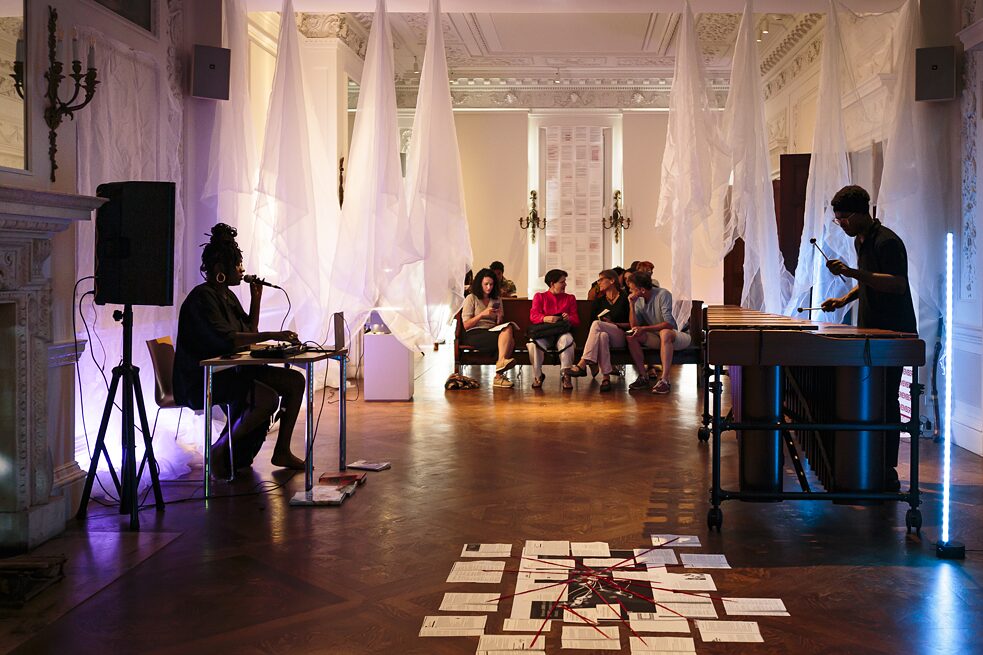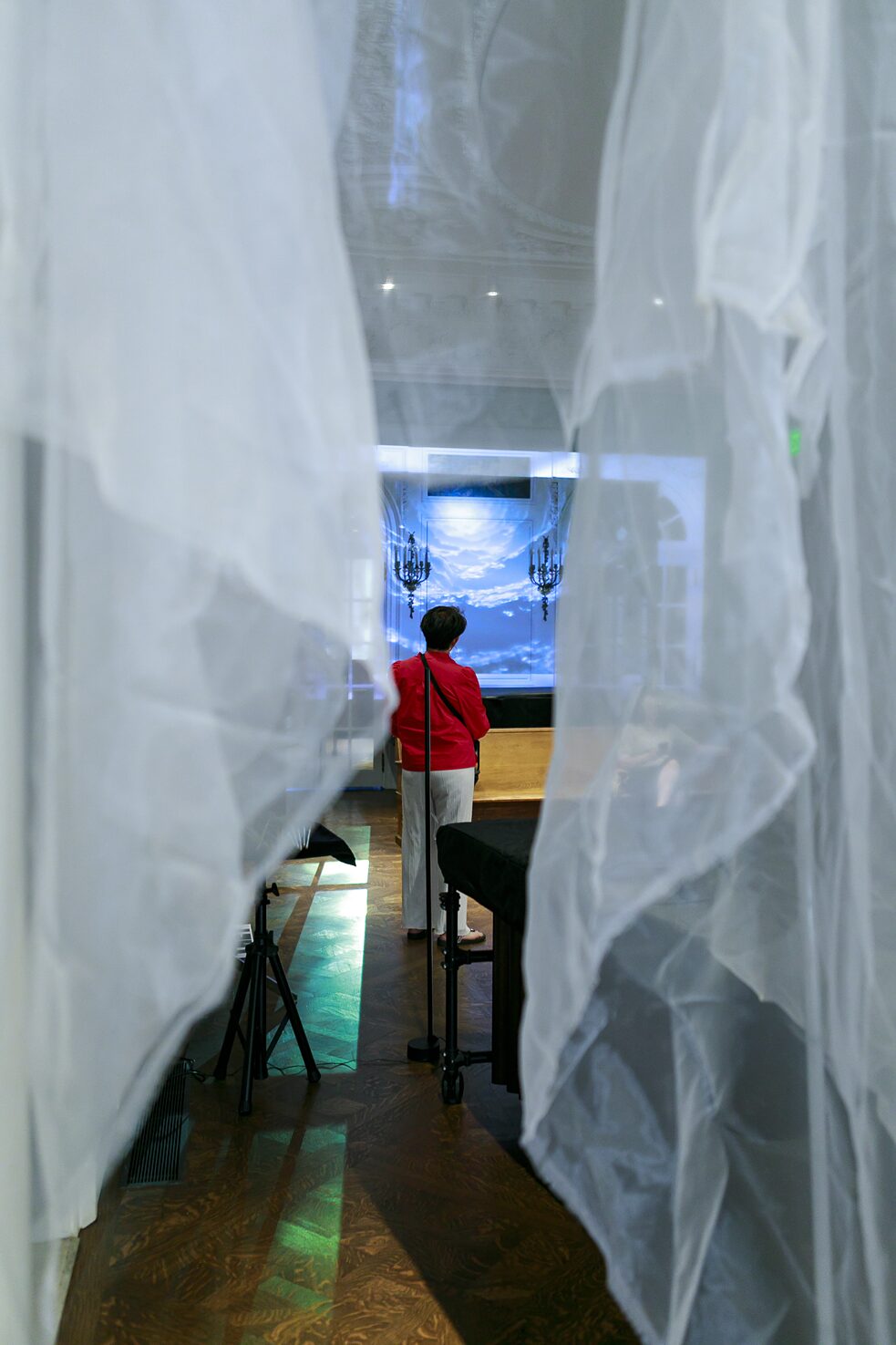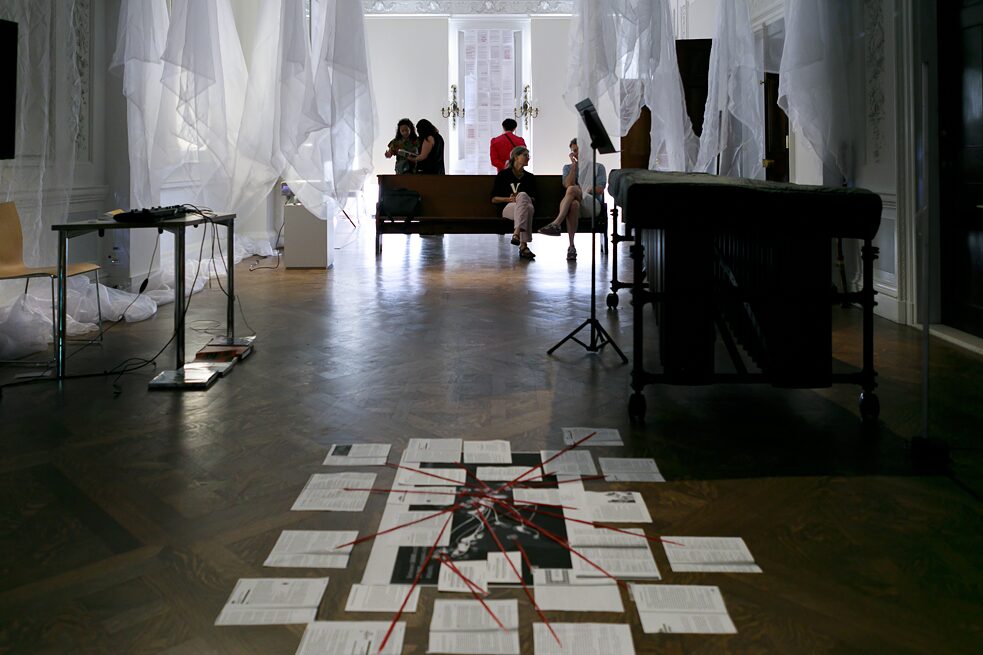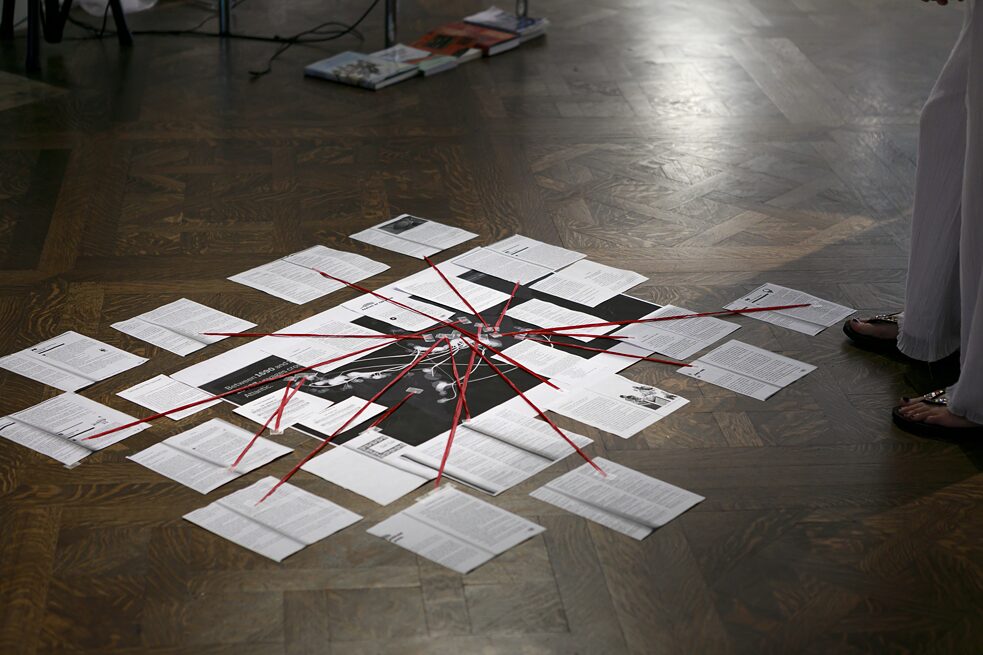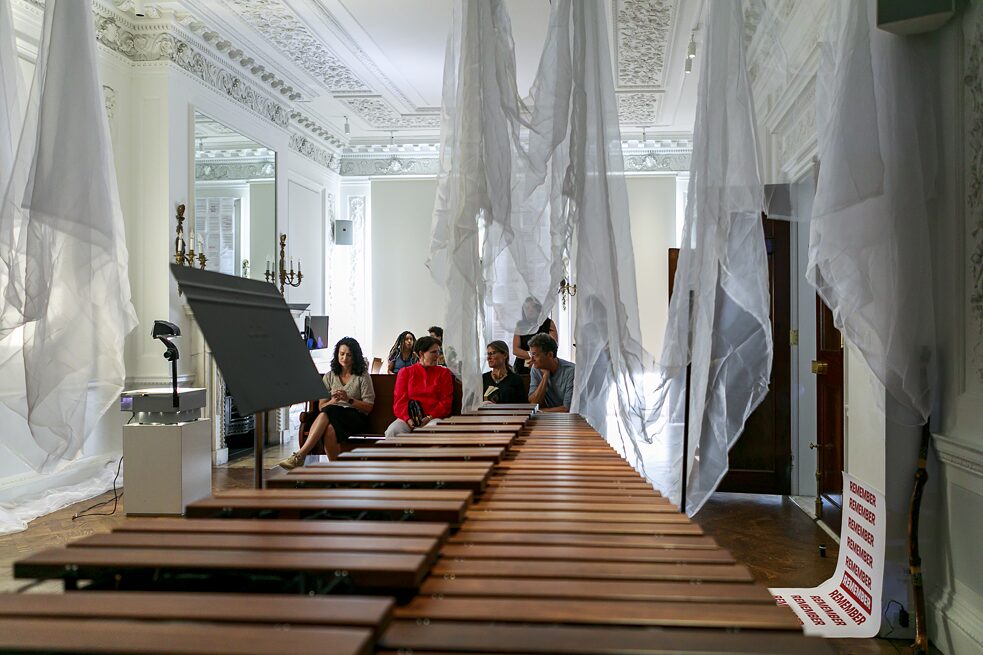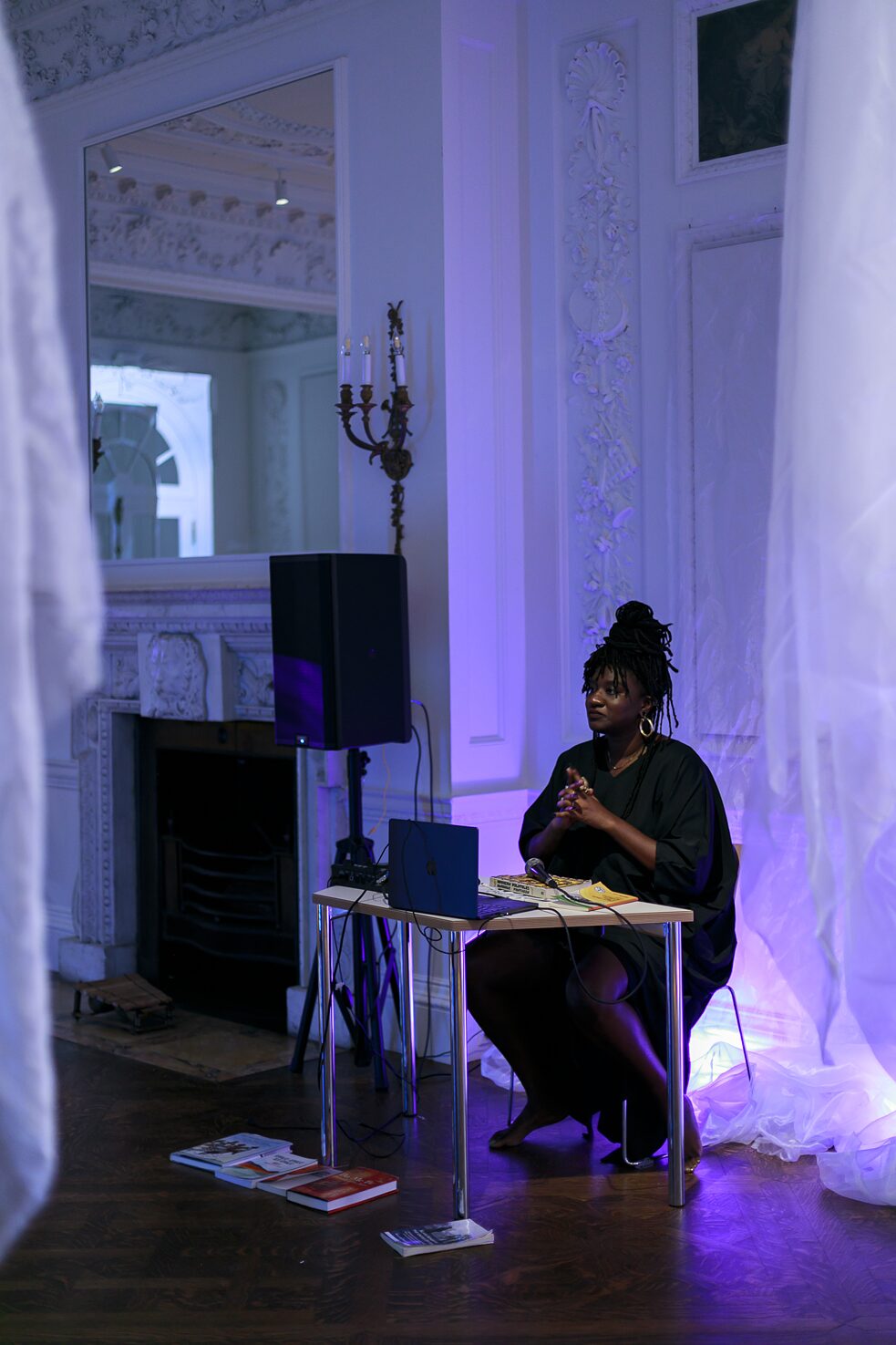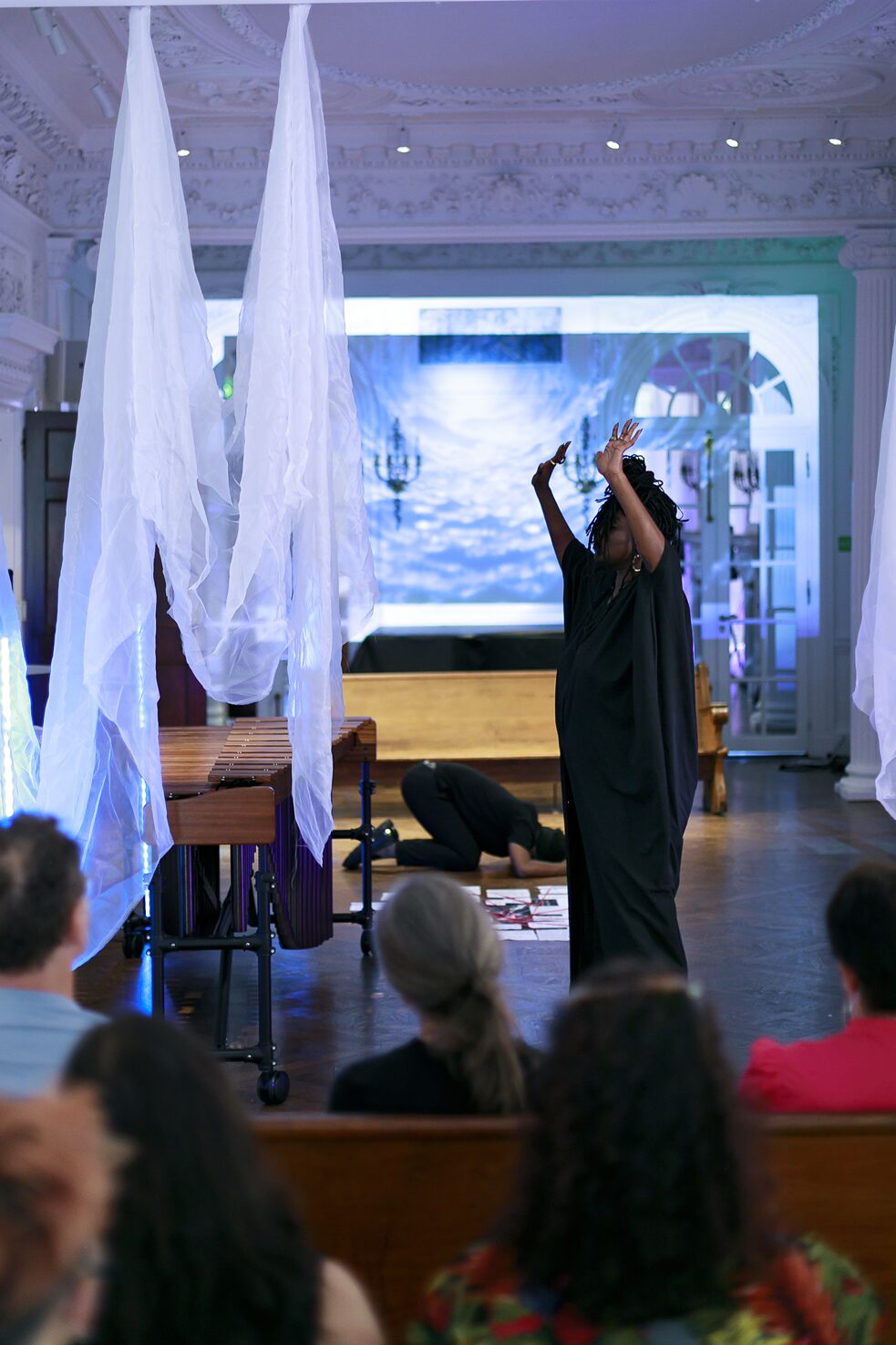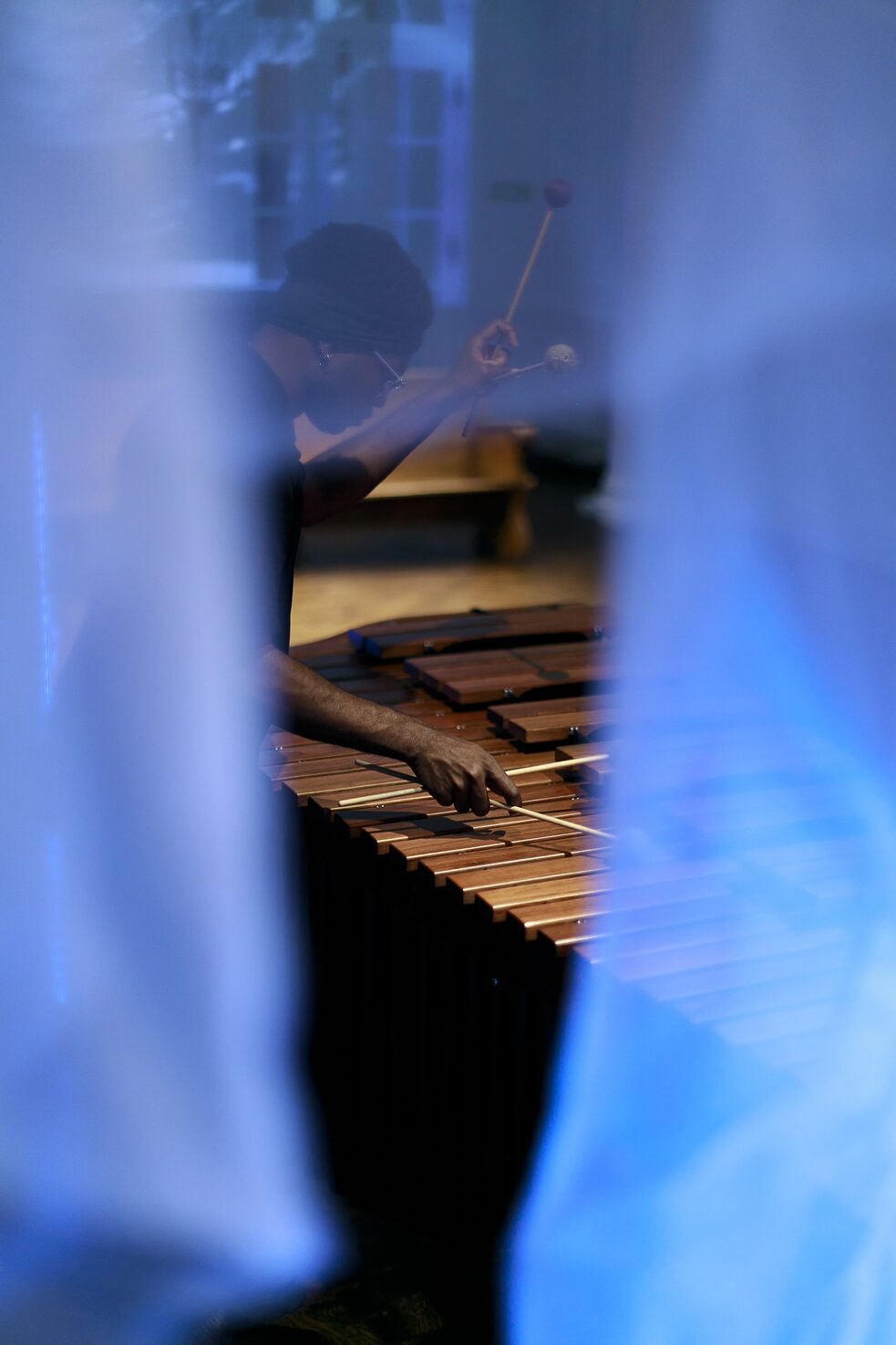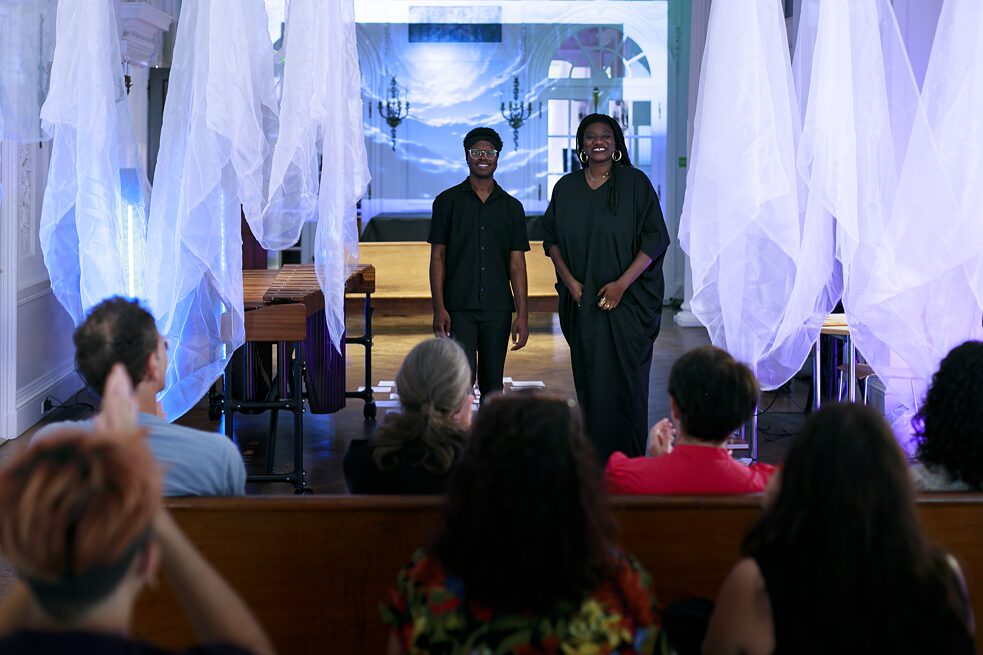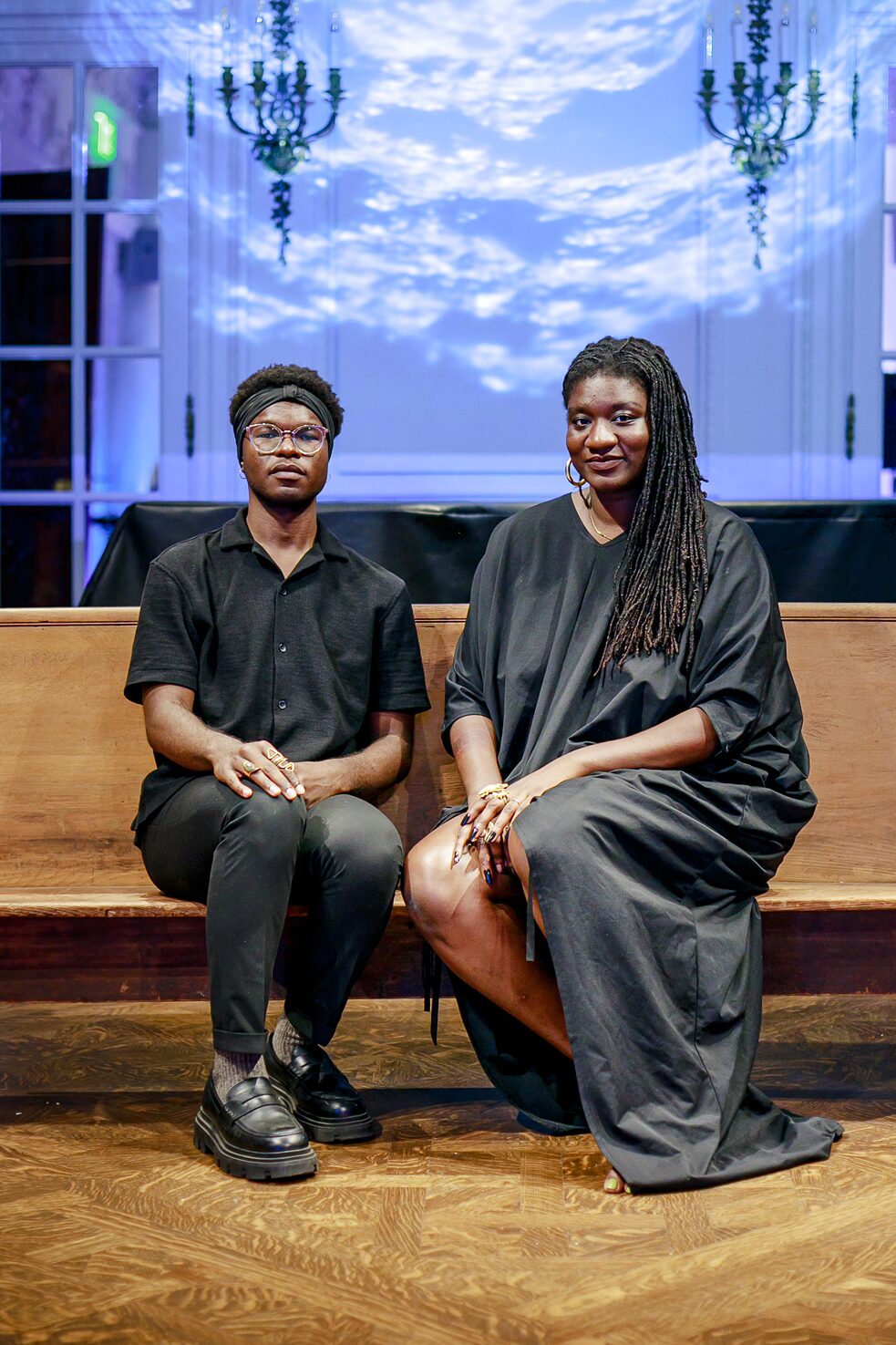Every Tongue Confess : A Ritual on Remembering
Installation & Performance
September 6-8, 2024
Goethe-Institut Boston
September 6th
6:00-9:30 PM Installation Opening
September 7th
Installation is open, exact times TBA
4:00 PM Installation is open
6:30 PM Doors open, Reception
7:30-8:30 PM Live Performance
September 8th
12:00 PM Installation is open
1:00-2:00 PM Postures of Prayer: A Performance Ritual
2:30-3:30 PM Panel Discussion with guests
An invitation to listen closely “‘Every Tongue Confes, is an evening-length performance inspired by Zora Neal Hurtson folktales. Layering poetry, marimba music, proverbs, and prayers, physical space becomes a container for memory and healing, and reflection about “how it feels to be here on earth or leaving, or about the sweet pain of hanging on between the coming and going.” (Hurston, 2001).
Dzidzor’s ability to collage live poems and soundscapes from speakers, sermons, and nature, combined with Steph Davis’ ability to stir, evoke, and shape the complexity of humanity through the marimba, is a merge of artistic innovation and profound storytelling — a glitch, a disruptive tapestry of memory and confession. The audience is invited to participate as witnesses through the practice of listening closely (Hurston, 2001), call and response, and embodiment.
The performance will weave themes of freedom, spirituality, healing, and pain through visuals, sound, and movement inspired by traditional African/African-American practices. The performance forges a space to manipulate time and disrupt the sonic environment of colonialism. We invite the audience to sit with the discomfort and wonder of the dead, the living, and beyond —as we honor traditions of possibility, resilience, collective care, liberation, and truth-telling.



